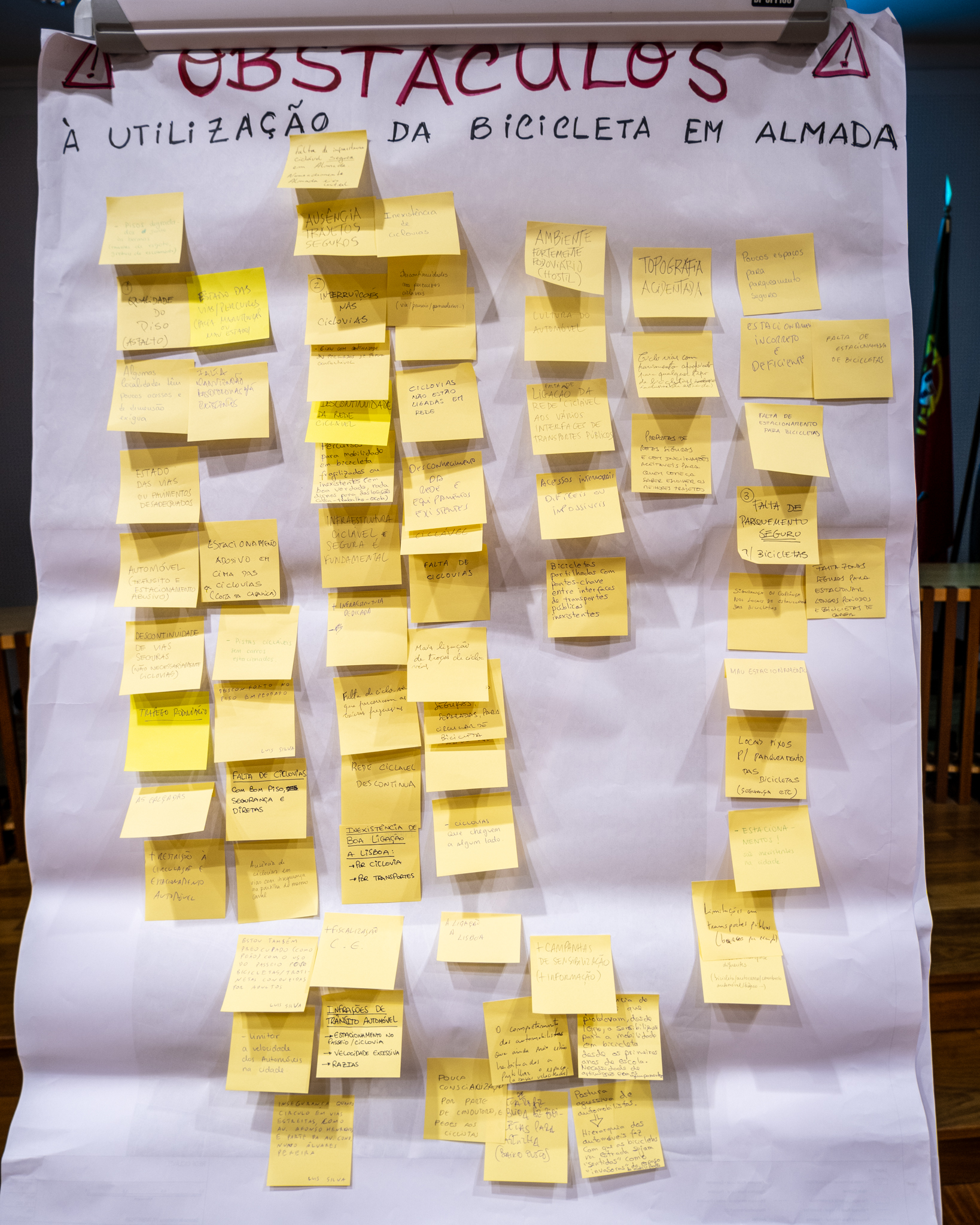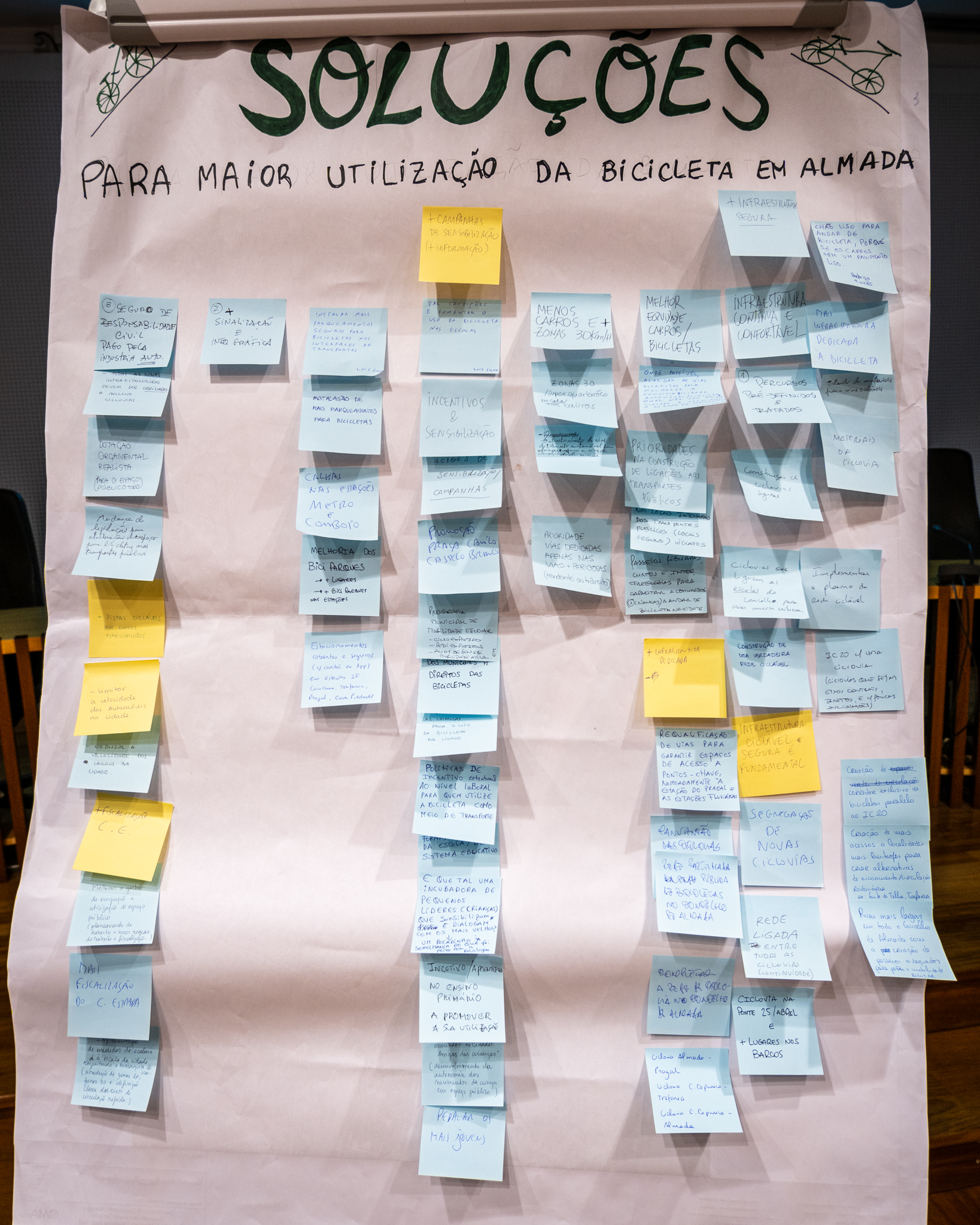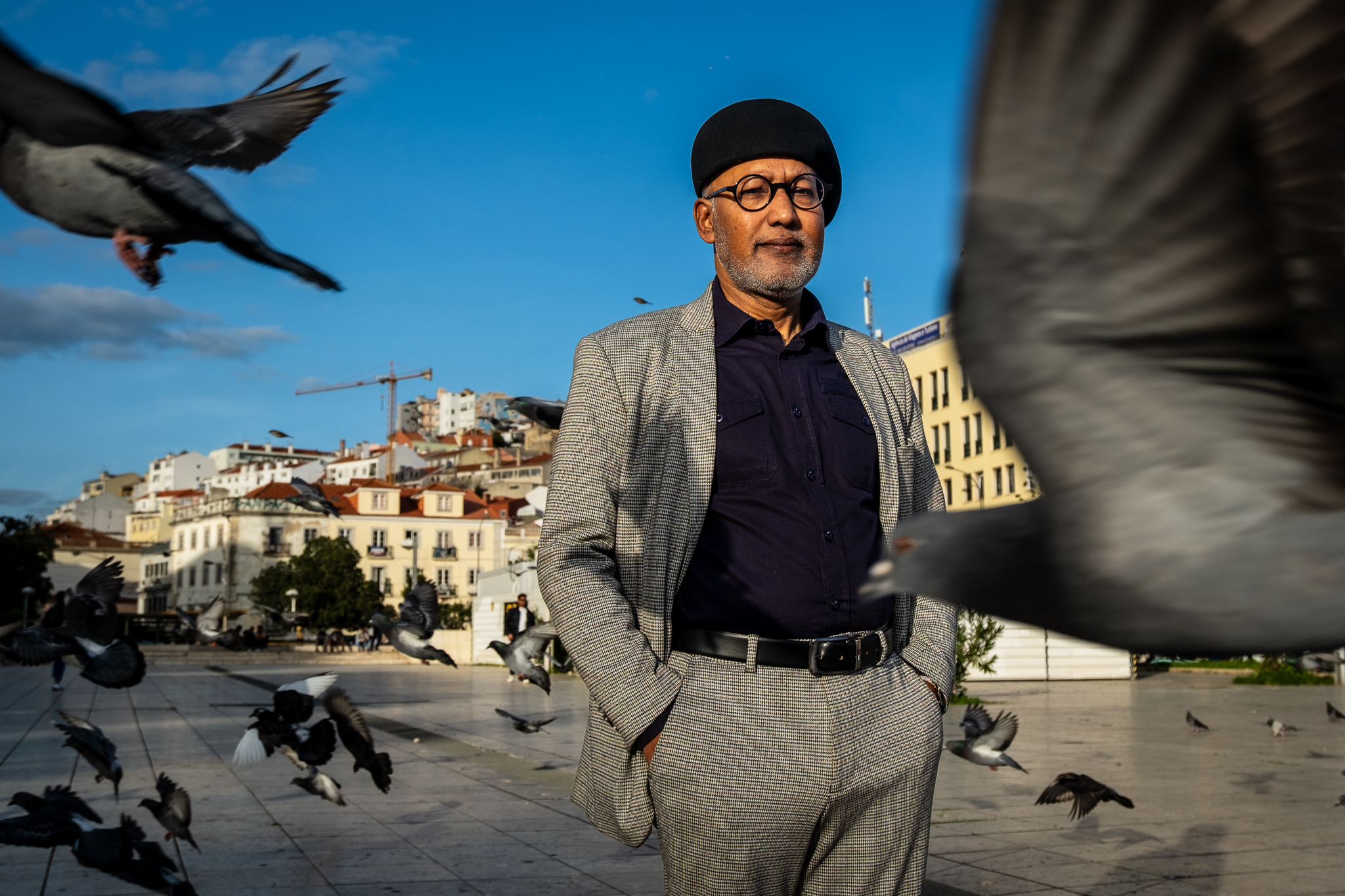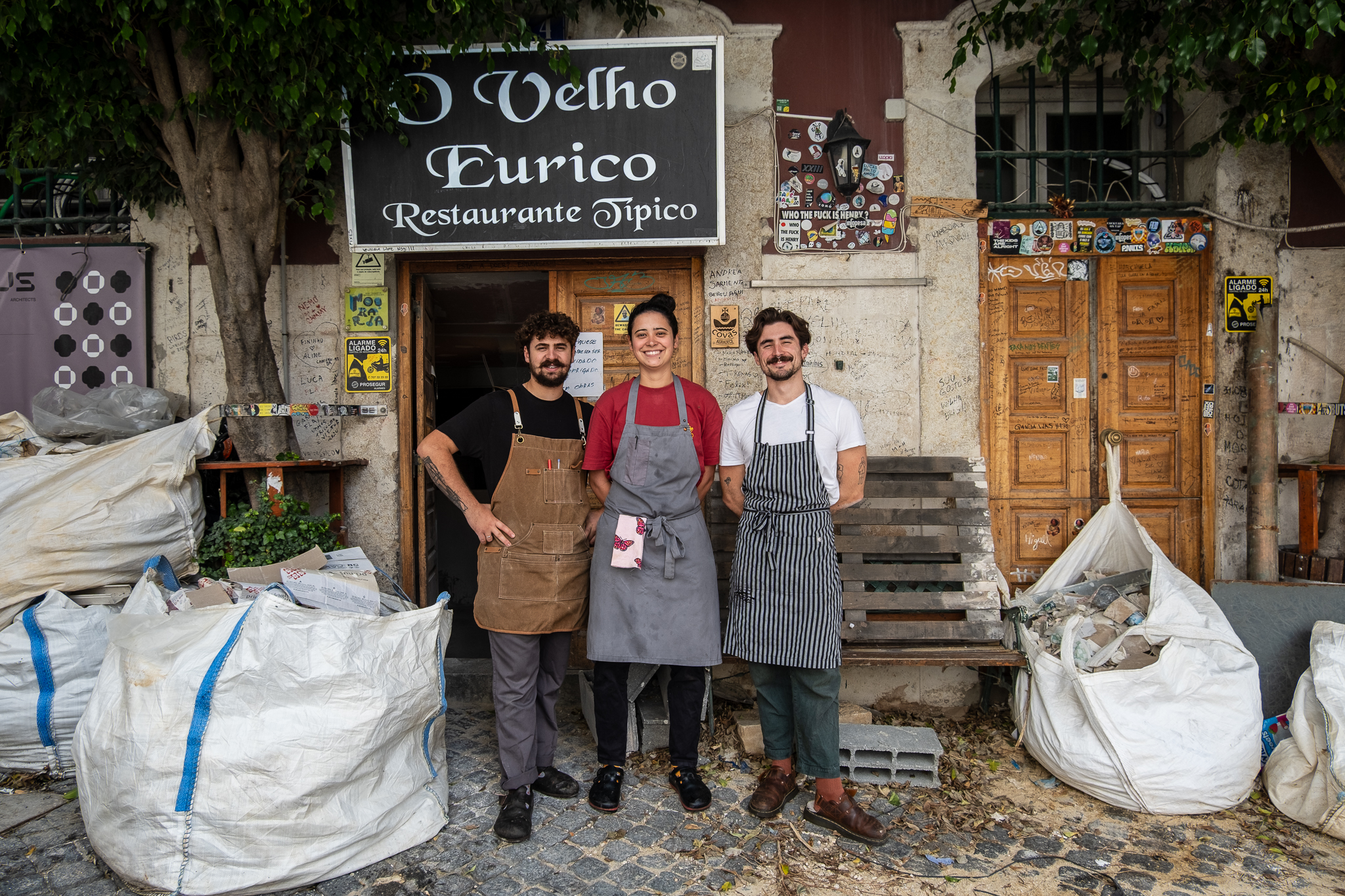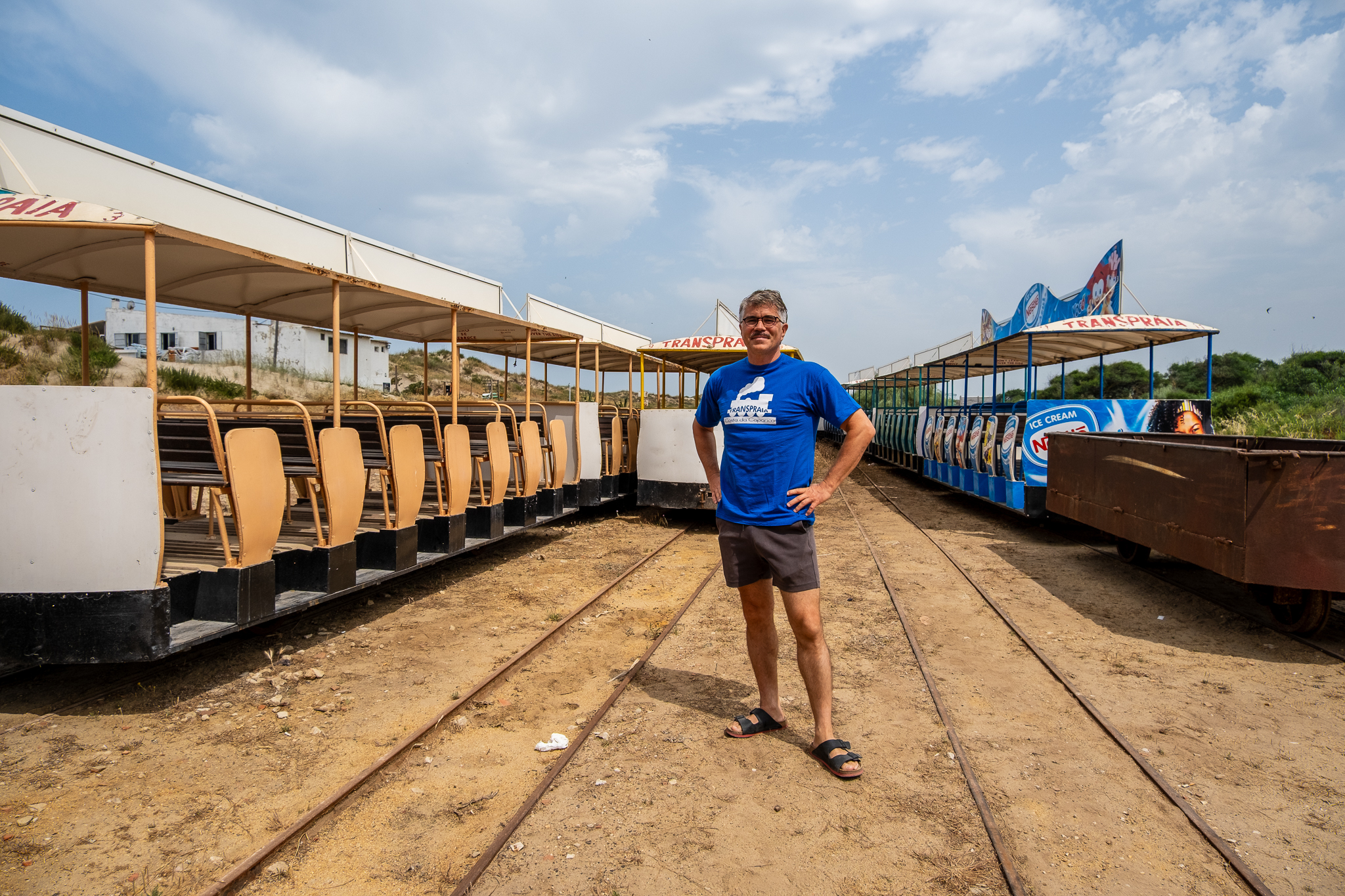During European Mobility Week, Almada City Council brought together a community of interested people and shared the new plans for building a cycling network in the municipality.

Of the 186 km of cycling network planned in the 2005 Almada Cycling Plan, only 35 km have been implemented - that is, less than 20% of what was planned. The target set at the time of achieving a 5% bicycle mode share in the municipality within 10 years (i.e. by 2015) has yet to be met. However, the 2021 Census indicates a modal split of only 0.4%, which still means an increase of 80% in the number of users compared to 2011. The Almada Ciclável Plan was ambitious: it proposed the bicycle as a solution for short-distance travel, for reducing car congestion and also as a complementary means to public transport.
📁 Documents
Despite being a pioneer in the Lisbon metropolitan area when it comes to talking about a cycling network, the municipality of Almada has been asleep at the switch in recent years. However without making excuses about what was done and what wasn't done, Almada City Council now wants to recover its 2005 plan, update it and put it into practice. To this end, in the middle of European Mobility Week, he organized a working group in his building. He invited people who cycle in the municipality, associations, informal groups and anyone who was interested in the topic, as the invitation was public. In a two-hour session, they presented a first draft of the new cycling network proposal for the municipalityHe then discussed some ideas with the interested community, also listening to feedback from the current point of view.
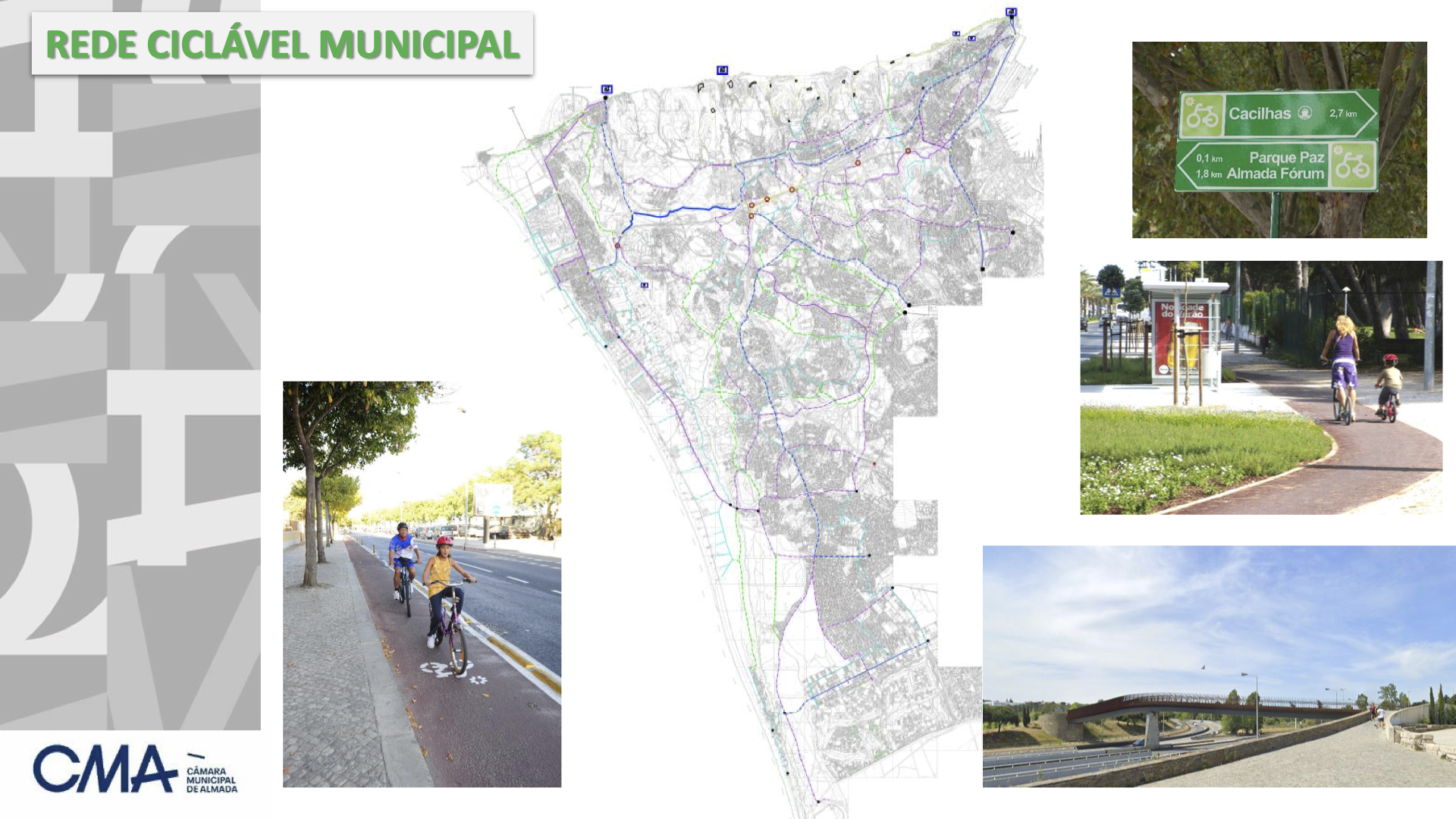
Margarida CoelhoMargarida, a technician from Almada City Council's Urban Planning Department, led the session, explaining that, in general terms, there is a big difference between the new plan and the one devised in 2005: as there are now electric bicycles, it is possible to plan routes that are not completely flat, as is the case with Avenida do Cristo Rei, which was recently redeveloped and which, two decades ago, was not included in the cycle network due to its steepness. Margarida indicated that the cycle network that Almada intends to build will combine segregated sections on the main links in the municipality and, then on another level, a local network made up of streets where sharing between the different modes of transport is encouraged, the car is a mere guest and speed is limited to 20 or 30 km/h. The cycling network will also be combined with the municipality's green structure, offering routes that not only serve everyday life but are also pleasant to walk.
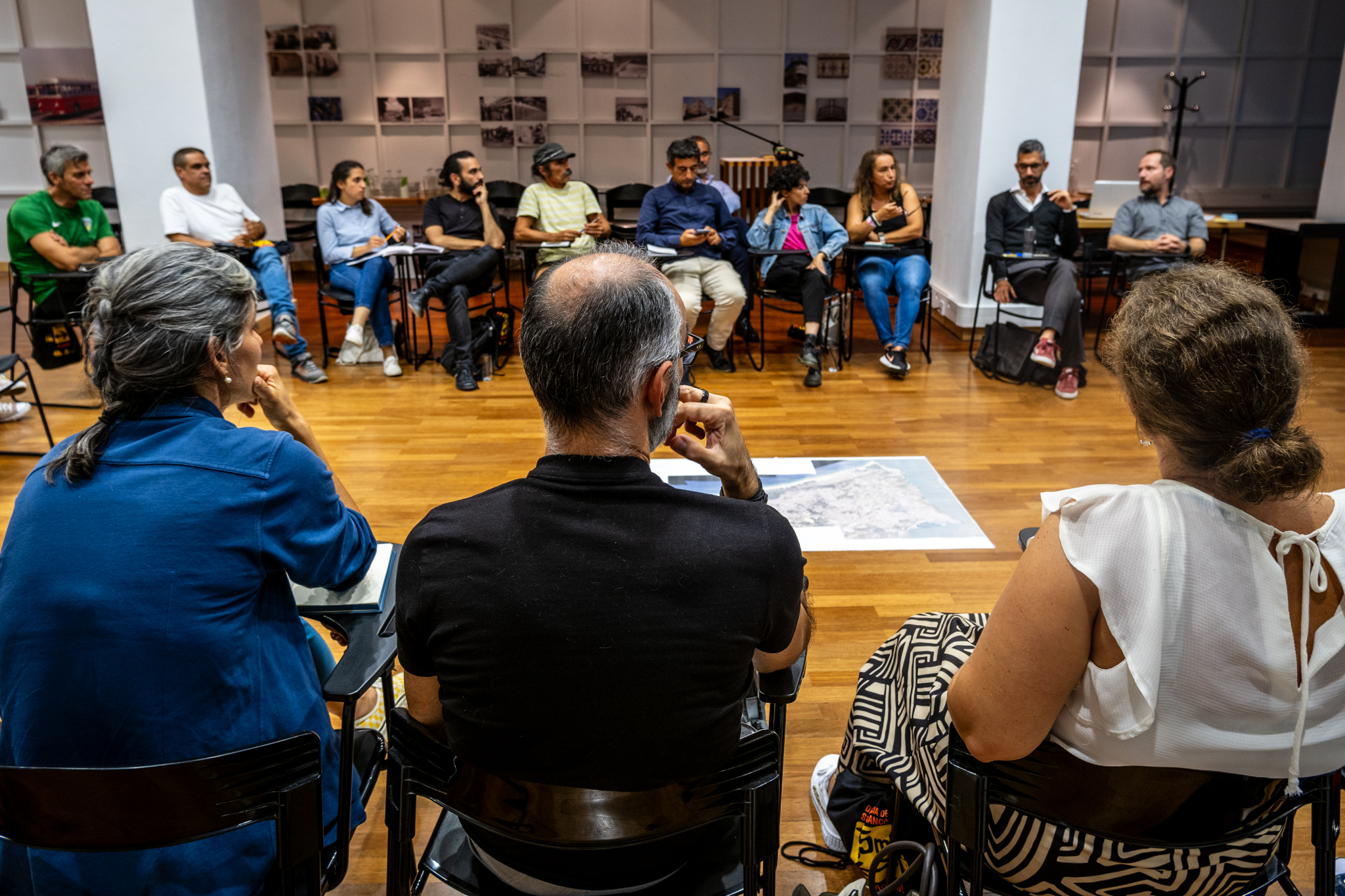
The head of Almada Town Hall explained that the plan now being revised has not yet been approved and that it will go through a phase of discussion, both with the working group that has now been formed and at a political level, among the municipal executive. She explained that the cycling network is a design to be developed as public space interventions are carried out on streets or as new urban subdivisions are developed. One of the participants suggested setting aside money in the Almada council's annual budget for the gradual construction of the cycling network, so that there is a commitment to its implementation. "To say that bike lanes will happen as and when there is intervention in the public space is to put things on the back burner"he said. "I suggest there be a budget allocation to do it."
During the session, those present lamented the limited availability of places on the river connections for bicycles, especially since Cacilhas is no longer served by ferry; and called for secure parking at the main mobility interfaces, such as Pragal, where two MTS lines, the Fertagus train (and CP long-distance trains) and Carris Metropolitana buses meet. They also talked about the need to give more local streets a less road-oriented look, reducing speeds to 30 km/h, creating coexistence zones and improving pedestrian and cycling circulation.
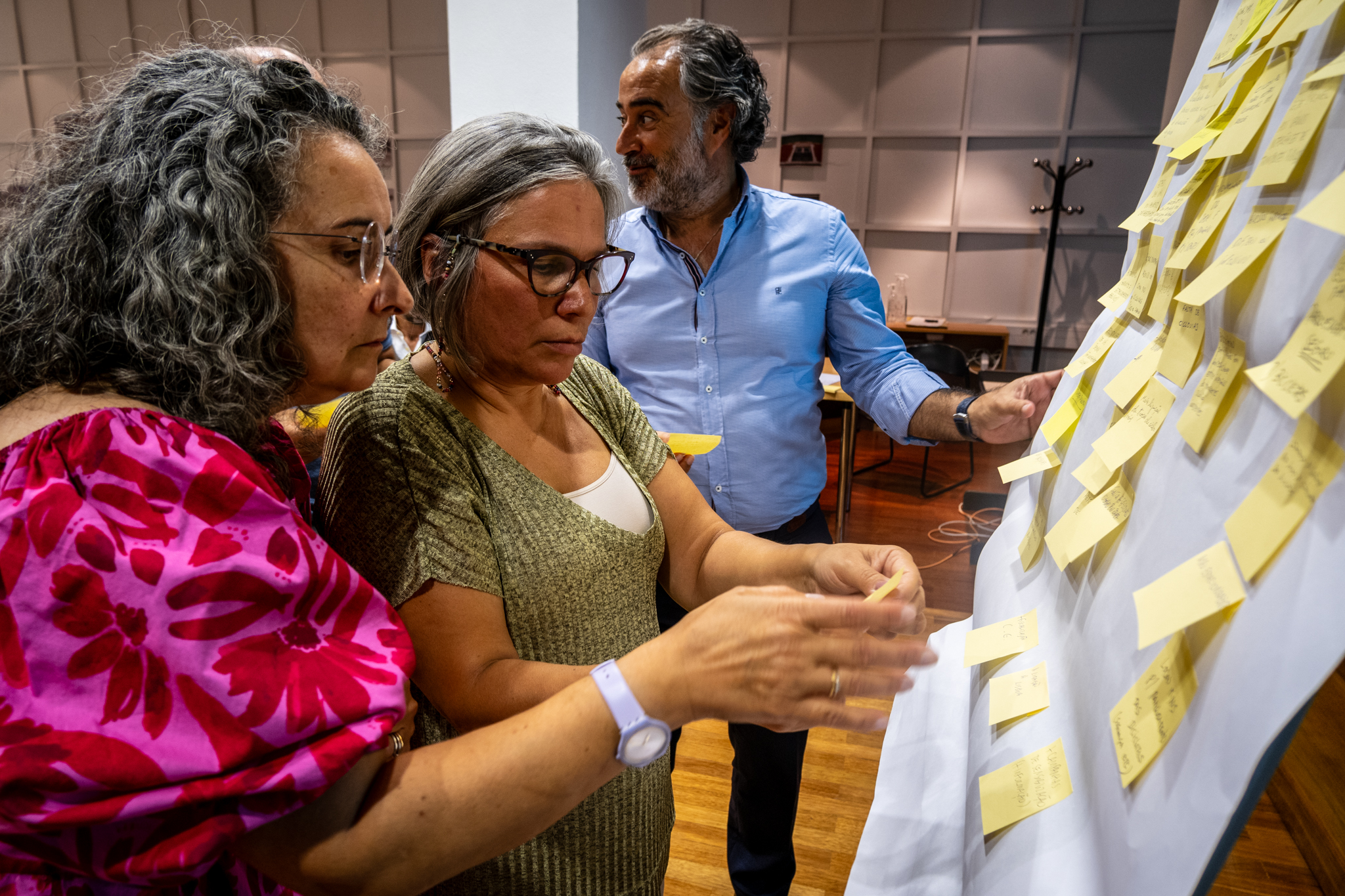
The group asked for a visual code to be defined for the municipality's cycle paths, so that the infrastructure is clearly visible to everyone, and questioned the use of a cobbled sidewalk on the new Fonte da Telha cycle path, pointing out that it is uncomfortable for those who cycle there on a daily basis. "It's important to have people who ride bicycles planning and designing the network"said one participant. "The wheel has already been invented, we don't need to reinvent it and we can learn from the mistakes of others"said another person. "Almada Town Hall is not an obstacle, it's an ally. The criticisms you are hearing are not a matter of attack, but of necessity. It's for the common good"Another participant clarified the discussion that was taking place there.
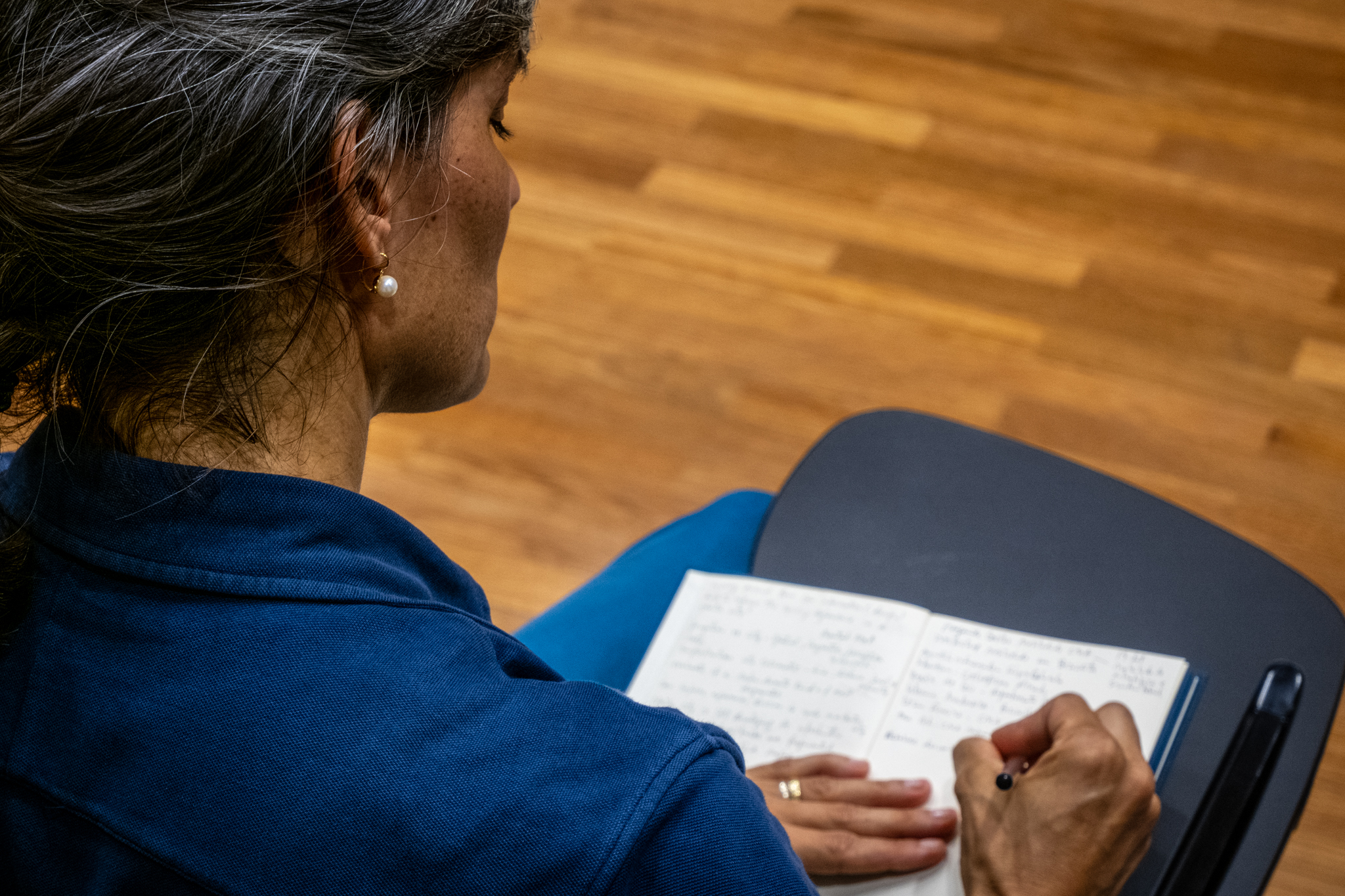
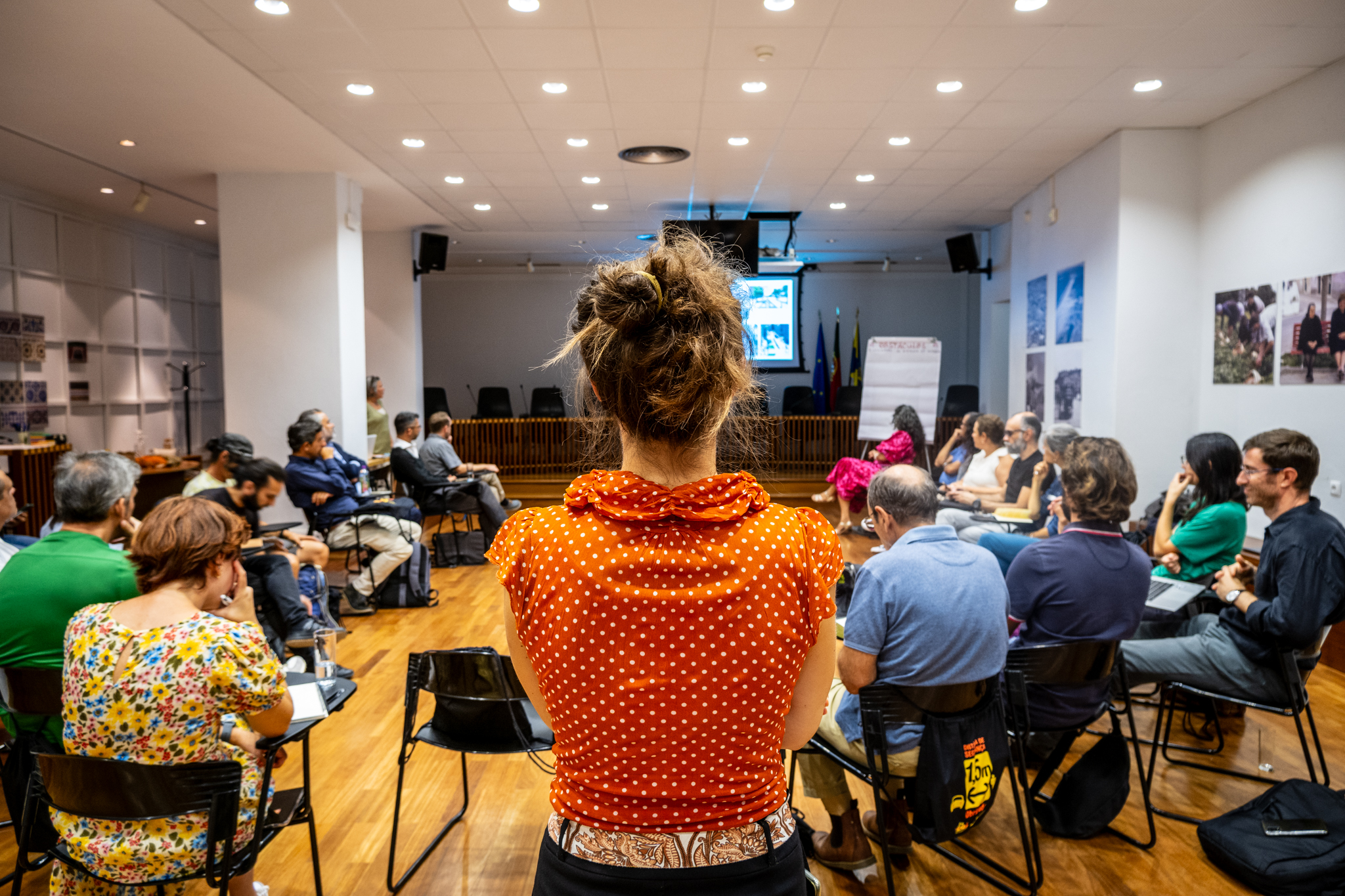
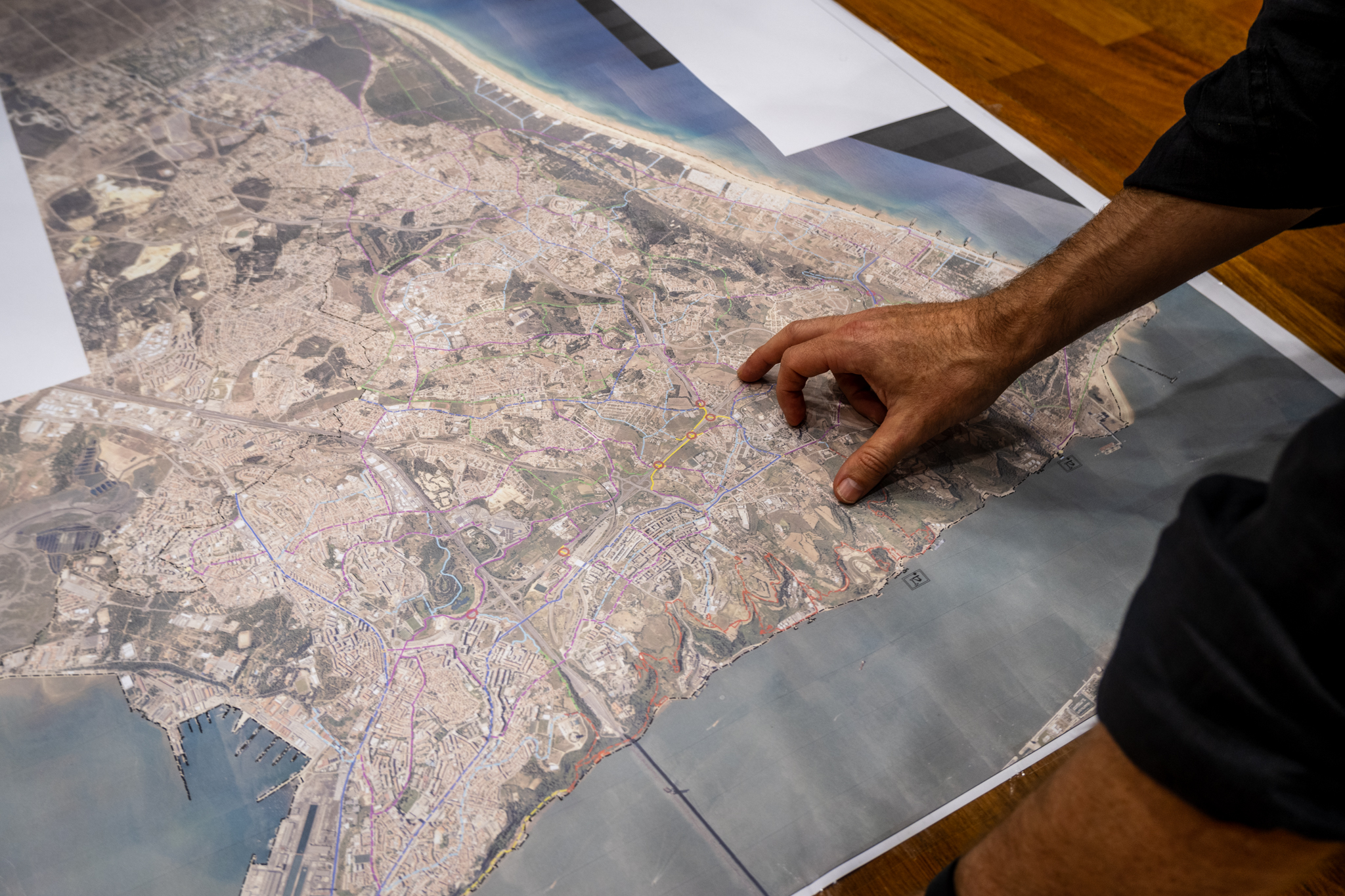
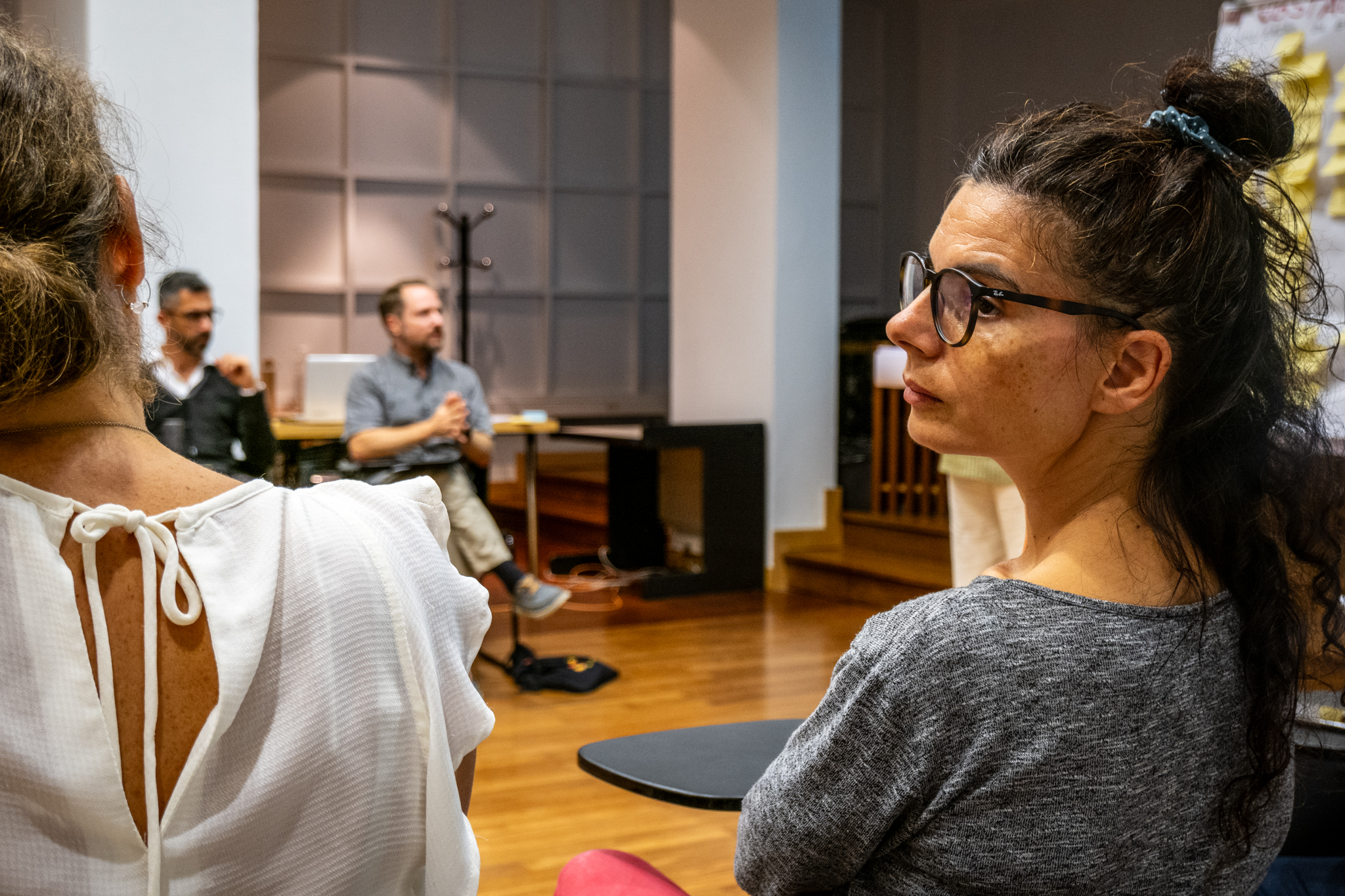
Margarida Coelho said that, specifically, one of the priorities is the creation of a cycle corridor between Pragal station and Costa da Caparica. "The path already exists, you already use it, but we want to make it more obvious and comfortable." On the other hand he works division of Almada City Council is already working on a series of maintenance projects for existing cycle pathsIn this field, the axis between Trafaria and Costa da Caparicawhich is currently quite dilapidated, as well as the axis between Cacilhas, Parque da Paz and Corroioswhich also has many problems, including abusive parking.
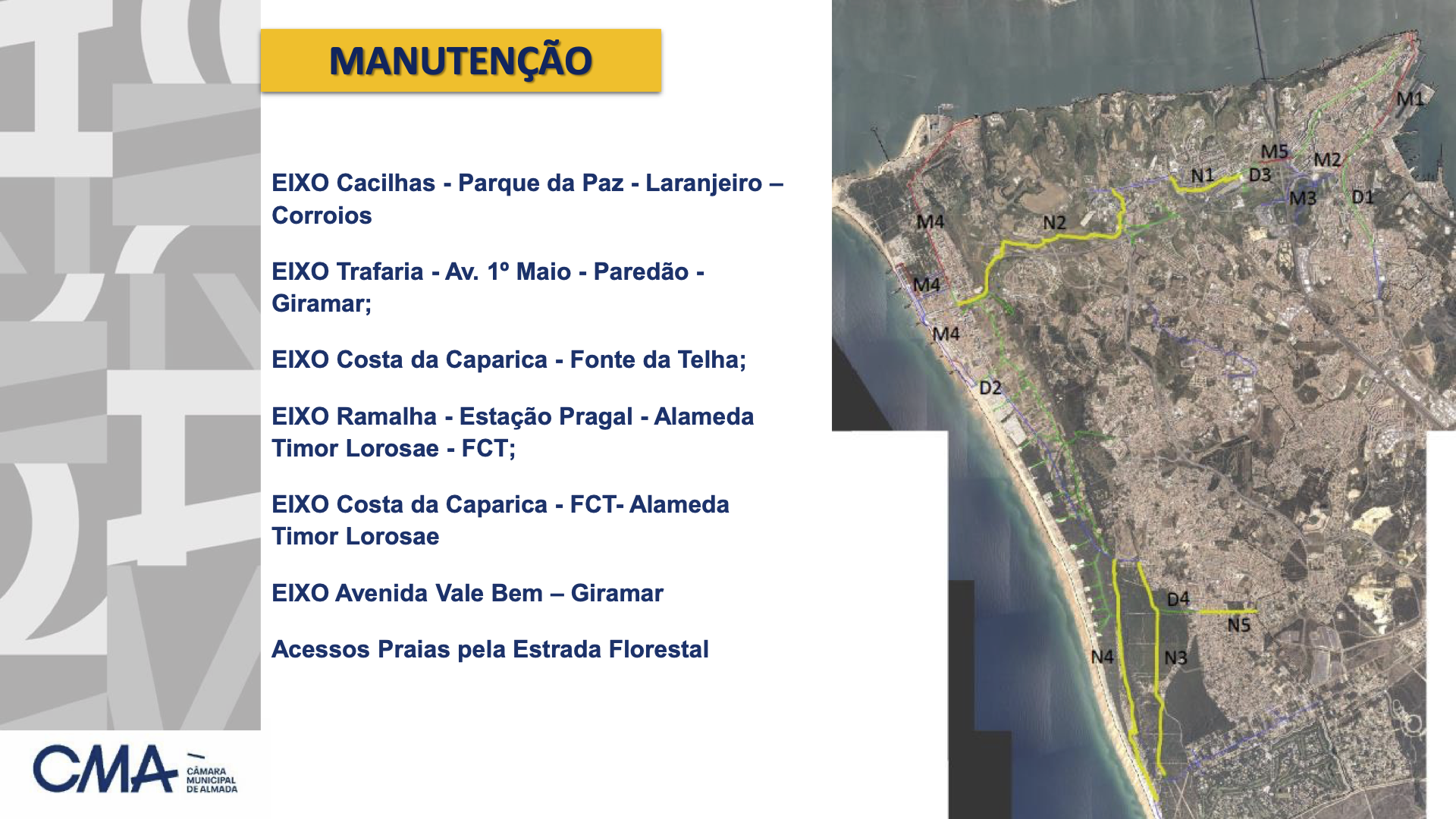
Connections to the FCT and the creation of access to the beaches from the Forestry Road are also in the plans. On the so-called Central Axis of Almada, which the municipality wanted to redevelop in 2021, giving priority to the automobileA new project is still under study, after the previous one was canceled due to popular protestIn the new cycling network proposal, the Central Axis is to have dedicated cycling infrastructure. Those present agreed that a cycle lane on the Central Axis is essential not only because of its proximity to shops and services, but also because of the discomfort of cycling on that axis; in addition to the cobbled surface, they highlighted the pressure that cars put on bicycles in the uphill direction.
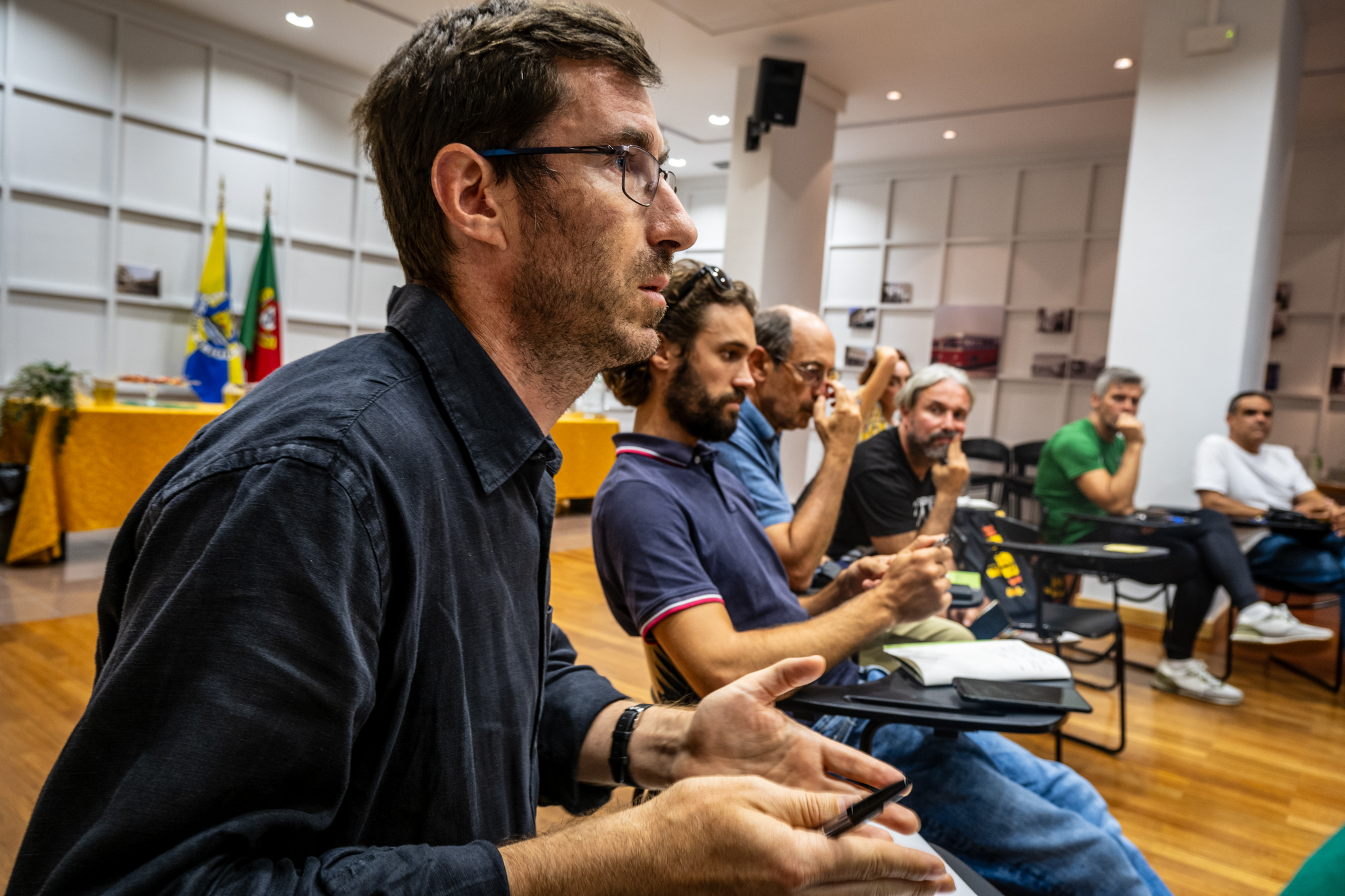
Margarida has no doubts: "We can't keep developing for more cars at the same time as we want to reduce the number of cars. We have to find a balance. We have this difficulty both at central state level and at local level." The Almada City Council technician explained that there are issues over which the municipality has no jurisdiction, such as river transportation - which is the responsibility of TTSL, a public company owned by the Ministry of the Environment - or the controversial widening of the IC20 - a responsibility of Infraestruturas de Portugal (IP), a company owned by the Ministry of Infrastructure, and the concessionaire, Baixo Tejo. The City Council can lobby and try to influence, but land management is a complex issue (as we also saw here).
The municipality of Almad defends the amplification of the MTS, the South Bank's light rail system, to Costa da Caparica and Trafaria, dreaming of a connection to Lisbon (the municipality of Almada has been advocating, together with Oeiras, a new crossing linking Trafaria to Algés); it also advocates the expansion and modernization of the Transpraia, giving it a public transport character, combining it with the MST and taking it to Trafaria. Another major proposal would be to build a station in Vale Flores, served by the Fertagus trains. The bicycle fits into this broader strategy for mobility in Almada, as it is in the PDM (Municipal Master Plan) and as it will be in the PMUS (Sustainable Urban Mobility Plan), which is currently under development
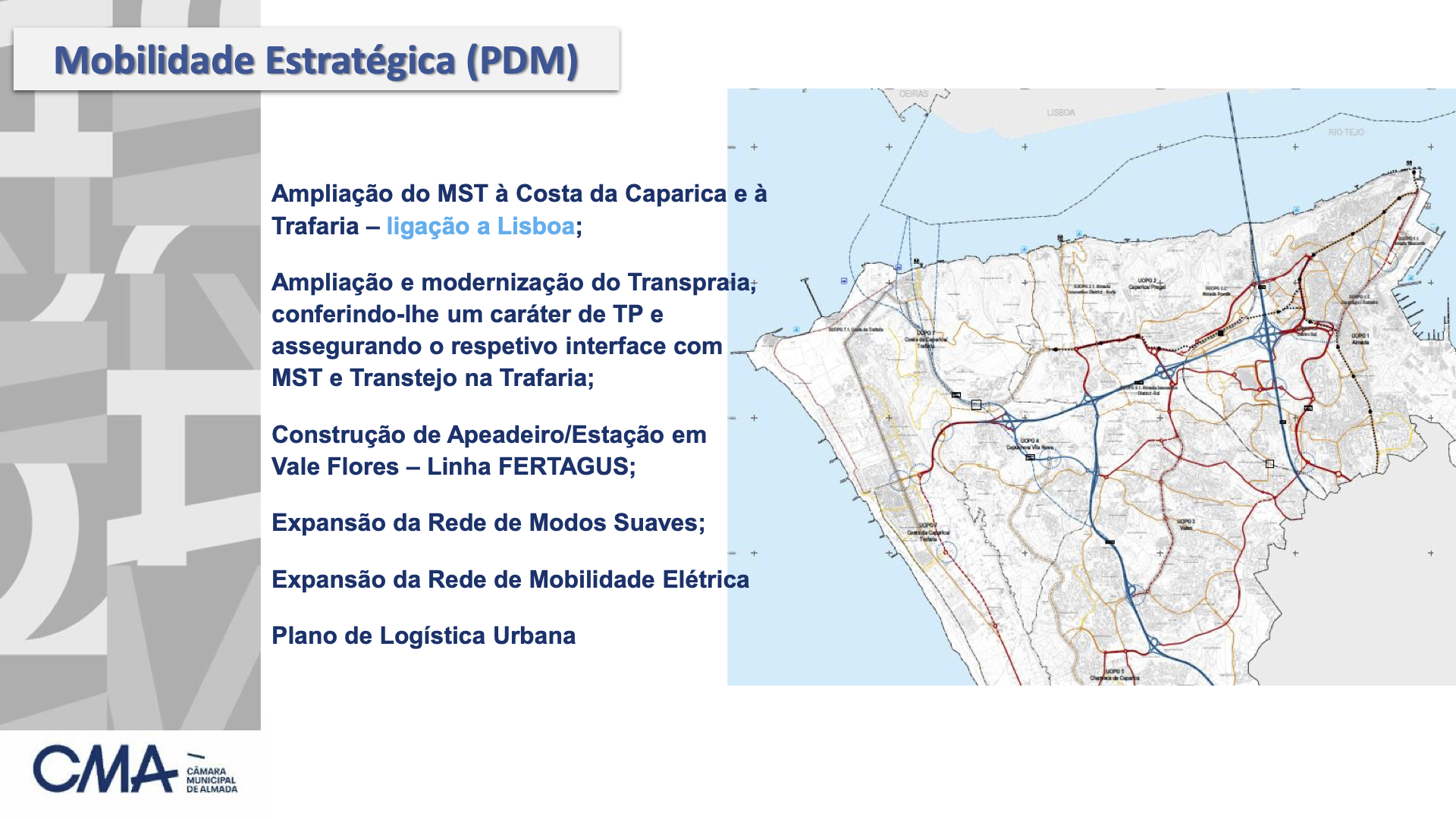
The working group set up informally during this European Mobility Week will continue to be involved in defining the cycling network for the municipality of Almad. Margarida and the Urban Planning Department will continue to liaise with this group. stakeholders to gather contributions and discuss proposals. In this first session, an "icebreaker" activity was developed in order to unblock the first conversations and possibly generate new insights: participants were challenged to share the obstacles to cycling in the municipality of Almada and then to propose solutions. At the same time, they were able to see the first sketch of the new network. Further sessions are promised as soon as there is a theme and news. Anyone interested in talking about this topic can, individually or collectively, show their interest to the Almada City Council's Urban Planning Department by e-mailing diacs@cma.m-almada.pt.
